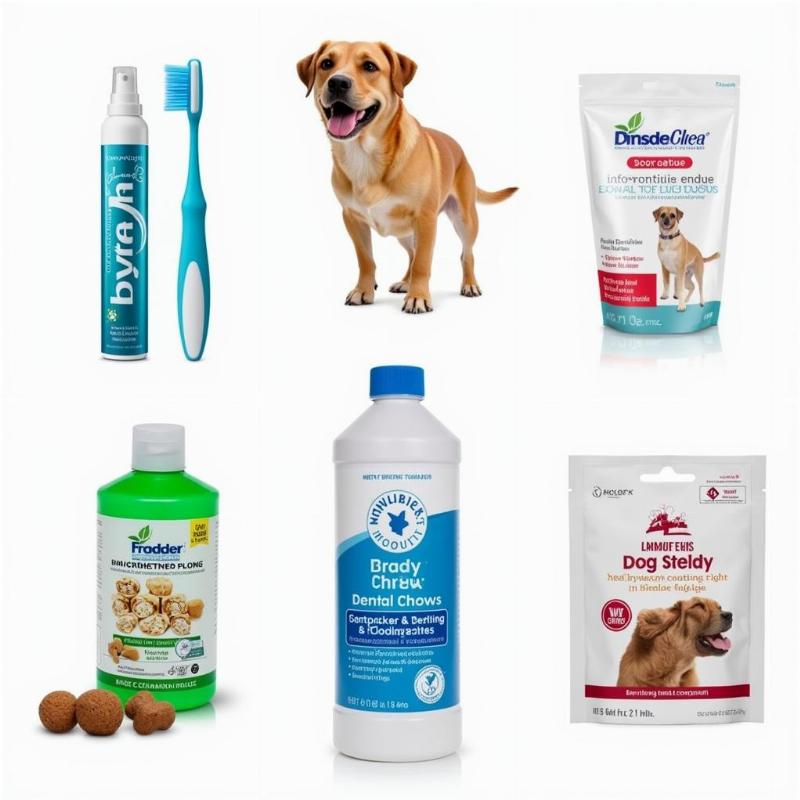The age-old question, “Is a dog’s mouth cleaner than a human’s?” often arises, especially after a slobbery canine kiss. The answer, however, isn’t a simple yes or no. While dog saliva does contain some antibacterial properties, the overall cleanliness of a dog’s mouth compared to a human’s depends on various factors, including diet, hygiene, and overall health. Let’s delve deeper into this intriguing topic and separate fact from fiction.
Understanding the Dog’s Oral Ecosystem
A dog’s mouth, like a human’s, is home to a complex ecosystem of bacteria. While some of these bacteria are beneficial, others can cause problems, not only for the dog but potentially for humans as well. The notion that a dog’s mouth is inherently cleaner stems from the observation that dogs lick their wounds, and these wounds often heal without infection. This is attributed to certain proteins in their saliva that possess antibacterial and wound-healing properties. However, this doesn’t mean a dog’s mouth is sterile or “cleaner” overall.
Comparing Canine and Human Oral Health
While dogs and humans share some oral bacteria, the types and quantities differ significantly. Humans tend to have a higher diversity of bacteria in their mouths, some of which are associated with dental diseases like cavities. Dogs, on the other hand, are less prone to cavities but are more susceptible to periodontal disease, an infection of the gums and supporting structures of the teeth. This is often caused by the buildup of plaque and tartar.
Factors Affecting Oral Hygiene in Dogs
Several factors contribute to the overall cleanliness of a dog’s mouth. Diet plays a crucial role. Dry kibble can help scrape away plaque, while wet food tends to cling to teeth, promoting bacterial growth. Regular dental care, including brushing, dental chews, and professional cleanings, is essential for maintaining good oral hygiene in dogs. Just like humans, dogs need routine dental checkups to prevent and address any potential issues.
 Dog Dental Care Essentials
Dog Dental Care Essentials
The Myth of the “Healing Lick”
While a dog’s saliva can have some antibacterial properties, it also contains a plethora of bacteria, some of which can be harmful to humans. Therefore, while a dog licking a minor scrape on your skin might not cause a problem, it’s best to avoid letting your dog lick open wounds or areas with broken skin. Similarly, allowing a dog to lick your face, especially near your mouth or eyes, can transmit bacteria and potentially lead to infections.
Keeping Your Dog’s Mouth Healthy
Maintaining good oral hygiene for your dog is essential for their overall health and well-being. Here are some tips:
- Regular Brushing: Brush your dog’s teeth daily using a dog-specific toothbrush and toothpaste.
- Dental Chews and Treats: Offer dental chews and treats approved by the Veterinary Oral Health Council (VOHC).
- Professional Cleanings: Schedule regular professional dental cleanings with your veterinarian.
- Healthy Diet: Feed a balanced diet appropriate for your dog’s age and breed.
Conclusion
So, is a dog’s mouth cleaner than a human’s? The answer is complex and depends on various factors. While dog saliva has some beneficial properties, it’s not inherently “cleaner” than human saliva. Focusing on regular dental care for your canine companion is crucial for maintaining their oral health and minimizing potential risks for both the dog and their human family members.
FAQs
- Is it safe to let my dog lick my face? While occasional licks might not be harmful, it’s generally best to avoid letting your dog lick your face, especially near your mouth, nose, and eyes.
- How often should I brush my dog’s teeth? Ideally, you should brush your dog’s teeth daily.
- What are signs of dental problems in dogs? Bad breath, red or swollen gums, difficulty eating, and excessive drooling can be signs of dental problems.
- Are there any specific dental treats recommended for dogs? Look for dental chews and treats with the Veterinary Oral Health Council (VOHC) seal of approval.
- How often should my dog have professional dental cleanings? Consult your veterinarian, but typically, annual cleanings are recommended.
- Can I use human toothpaste on my dog? No, human toothpaste contains ingredients that can be harmful to dogs. Use only dog-specific toothpaste.
- What can I do if my dog refuses to let me brush their teeth? Start slowly and gradually introduce the toothbrush and toothpaste. Positive reinforcement with treats can help.
Related Articles on Beautdogs.us
Beautdogs.us is your premier source for all things dog-related in the US. We offer expert advice on dog breeds, care, and products. Whether you’re a seasoned dog owner or just starting your journey with a furry friend, Beautdogs.us is your trusted resource for comprehensive and engaging information. Connect with us for personalized advice and support. Email: [email protected], Phone: +1 501-555-7529. Visit us at Beautdogs.us.